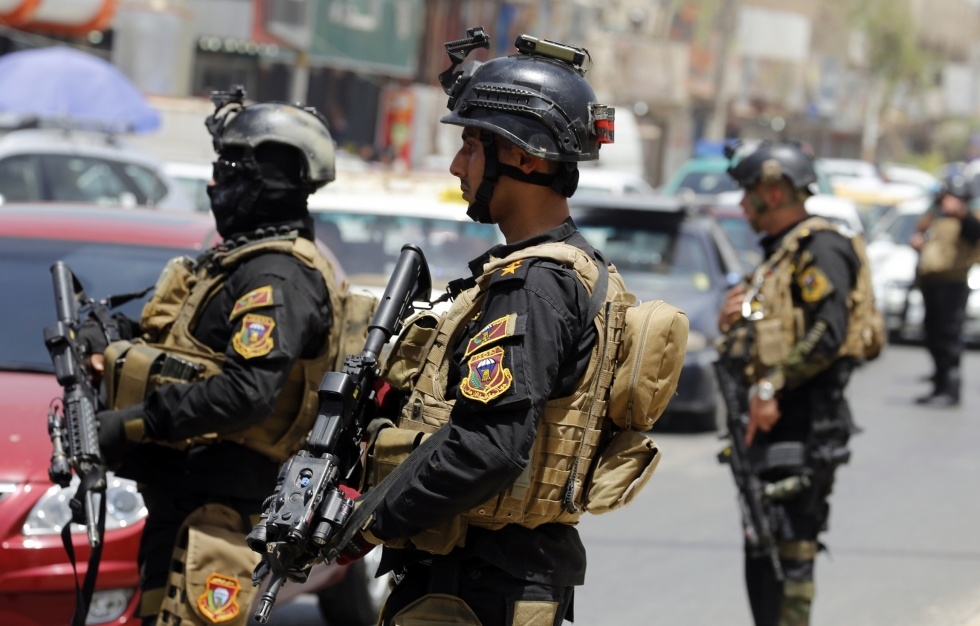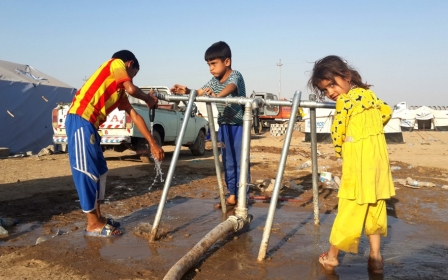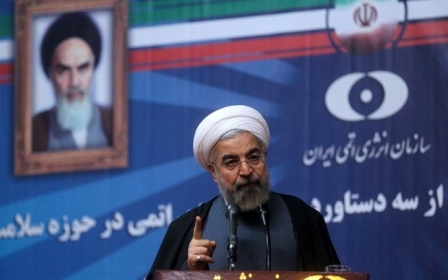Iraq appeals for US air strikes against Sunni militants

Baghdad asked Washington Wednesday to carry out air strikes on Sunni militants who seized more territory in Iraq's north and are pressing an eight-day offensive.
The White House indicated Wednesday that President Barack Obama had yet to rule out air strikes in Iraq to support government forces.
While Iraqi officials touted progress, militants seized three villages in northern.
"Iraq has officially asked Washington to help... and to conduct air strikes against terrorist groups," Foreign Minister Hoshyar Zebari told reporters in Saudi Arabia.
However, Zebari said "a military approach will not be enough. We acknowledge the need for drastic political solutions."
General Martin Dempsey, chairman of the Joint Chiefs of Staff, confirmed that Baghdad had requested US "air power" to fend off the onslaught of Sunni militants. But he said the political leadership had sown the seeds of the crisis it now faces.
"There is very little that could have been done to overcome the degree to which the government of Iraq had failed its people. That's what has caused this problem," Dempsey told lawmakers.
He said senior US officers in recent years have conveyed to the Iraqi government the risks of their political approach and the need to serve all the country's religious and ethnic communities. But their advice was largely ignored, he said.
Obama, who was due to meet top congressional leaders, including Republican critics, to discuss his strategy, was considering a range of options, his spokesman Jay Carney said.
"The only thing the president has ruled out is sending troops back into combat in Iraq, but he continues to consider other options," Carney said.
"Work is being done that will help us see with more clarity what the options available to the president are," Carney added, when asked to clarify whether Obama had ruled out air strikes.
The United States spent billions of dollars over several years training and arming Iraqi security forces after disbanding the Sunni-led army following the 2003 invasion.
Washington has deployed an aircraft carrier to the Gulf and sent military personnel to bolster security at its Baghdad embassy.
Strategic corridor to Syria
Iraqi security spokesman, Lieutenant General Qassem Atta, said security forces would shortly retake full control of Tal Afar, a Shiite town in the north that lies along a strategic corridor to Syria.
That would provide a base from which to launch operations to recapture Mosul, he said.
Iranian President Hassan Rouhani said Tehran "will do everything" to protect Shiite shrines in Iraqi cities.
After taking Mosul, militants captured a major chunk of mainly Sunni Arab territory stretching towards the capital.
The militants' swift advance has sparked international alarm and the United Nations has warned that the crisis was "life-threatening for Iraq."
Analysts suggested that the country could unravel, surviving at best as a federal state.
"I don't think it's impossible, but it is highly unlikely," said John Drake, an Iraq analyst with AKE Group, when asked if Iraq could remain united.
The militant's rapid advances are due, in part, to the Iraqi government’s failure to govern inclusively.
"This current government in Iraq has never fulfilled the commitments it made to bring a unity government together with the Sunnis, the Kurds and the Shiites," US Secretary of Defense Chuck Hagel said while testifying before the Senate Appropriations Defense Subcommittee Wednesday.
"We have worked hard with them within the confines of our ability to help them do that, but we can't dictate to them," he added.
US Senator Lindsey Graham cautiously acknowledged that the America may have to talk with Iran on security issues, which Hagel agreed with.
Cheney blames Obama
Meanwhile, Bush-era vice president Dick Cheney savaged Obama for his alleged Iraq policy failure Wednesday, warning that a shrinking US military posture could fuel terrorism.
"Rarely has a US president been so wrong about so much at the expense of so many," Cheney said in a column co-authored by daughter Liz Cheney, a senior State Department official in the George W. Bush administration.
"Too many times to count, Mr. Obama has told us he is 'ending' the wars in Iraq and Afghanistan -- as though wishing made it so. His rhetoric has now come crashing into reality."
"Weakness and retreat are provocative. US withdrawal from the world is disastrous and puts our own security at risk," he wrote.
Harry Reid, the Senate majority leader denounced Cheney's broadside.
"Those who attack the president for bringing our troops home from Iraq are just flat wrong, and they are out of step with the American people. After a decade of war, I believe the American people have had enough," Reid said on the Senate floor.
"If there is one thing we can all agree on here, it's that we should not be taking advice on Iraq from Dick Cheney," he added.
"To be on the wrong side of Dick Cheney is to be on the right side of history."
New MEE newsletter: Jerusalem Dispatch
Sign up to get the latest insights and analysis on Israel-Palestine, alongside Turkey Unpacked and other MEE newsletters
Middle East Eye delivers independent and unrivalled coverage and analysis of the Middle East, North Africa and beyond. To learn more about republishing this content and the associated fees, please fill out this form. More about MEE can be found here.




